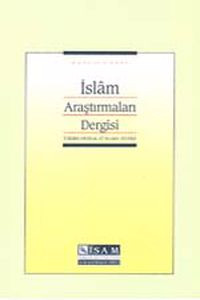Abstract
Although there were many views put forward before his time about the concept of fasâha (purity and perfection of language) and balâga (rhetoric, eloquence), Khatib al-Qazwini (d. 739/1338) found these definitions to be incomplete; benefiting from these views, al-Qazwini brought clearer and better defined concepts to the aforementioned subjects. He determined that as fasâha and balâga were attributes they could be separated from one another according to the object. There are three different definitions for fasâha, as an attribute for the word, speech or the speaker. Again, for balâga, there are two different definitions, that of the speech and the speaker. In this article we will examine how al-Qazwini defined the concepts of fasâha and balâga, while also referring to opinions of some important balâga scholars before him. In addition, this work attempts to explain how al-Qazwini’s views as expressed in his concise work Talhis al-Miftah have been interpreted and also criticized in its commentaries.
References
- Ahmed Matlûb, Mu‘cemü’l-mustalahâti’l-belâgıyye ve tetavvürühâ, Beyrut: Mektebetü Lübnân, 2000.
Abstract
Hatîb el-Kazvînî (ö. 739/1338) belâgat ilmine dair kaleme aldığı Telhîsü’lMiftâh ve onun şerhi mesabesindeki el-Îzâh isimli eserlerinin mukaddimesinde daha önce açık ve kesin bir şekilde yapılmamış olan bir şeyi yapacağını belirterek fesâhat ve belâgat kavramlarını inceler ve aralarındaki farkı ortaya koymaya çalışır. Ona göre fesâhat ve belâgat kavramları gerektiği gibi tanımlanamamış ve aralarındaki fark açık bir şekilde ortaya konulamamış olduğu gibi bunların kelâm ve onu söyleyene (mütekellim) sıfat olarak kullanılmaları hâlindeki anlam farkına da işaret edilmemiştir.
Keywords
References
- Ahmed Matlûb, Mu‘cemü’l-mustalahâti’l-belâgıyye ve tetavvürühâ, Beyrut: Mektebetü Lübnân, 2000.
Details
| Primary Language | Turkish |
|---|---|
| Subjects | Religious Studies |
| Journal Section | Makaleler |
| Authors | |
| Publication Date | January 1, 2007 |
| Published in Issue | Year 2007 Issue: 17 |


